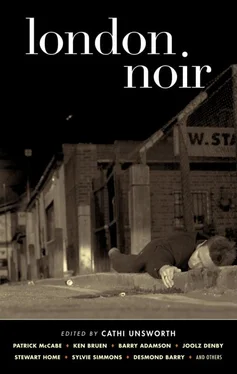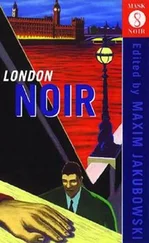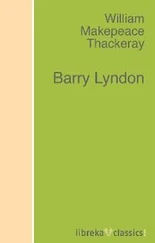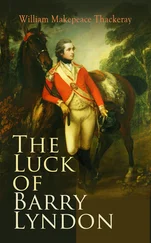Desmond Barry - London Noir
Здесь есть возможность читать онлайн «Desmond Barry - London Noir» весь текст электронной книги совершенно бесплатно (целиком полную версию без сокращений). В некоторых случаях можно слушать аудио, скачать через торрент в формате fb2 и присутствует краткое содержание. Город: New York, Год выпуска: 2006, ISBN: 2006, Издательство: Akashic Books, Жанр: Детектив, на английском языке. Описание произведения, (предисловие) а так же отзывы посетителей доступны на портале библиотеки ЛибКат.
- Название:London Noir
- Автор:
- Издательство:Akashic Books
- Жанр:
- Год:2006
- Город:New York
- ISBN:978-1-888451-98-6
- Рейтинг книги:4 / 5. Голосов: 1
-
Избранное:Добавить в избранное
- Отзывы:
-
Ваша оценка:
- 80
- 1
- 2
- 3
- 4
- 5
London Noir: краткое содержание, описание и аннотация
Предлагаем к чтению аннотацию, описание, краткое содержание или предисловие (зависит от того, что написал сам автор книги «London Noir»). Если вы не нашли необходимую информацию о книге — напишите в комментариях, мы постараемся отыскать её.
Cathi Unsworth
Sounds
Melody Maker
Purr
Bizarre
The Not Knowing
London Noir — читать онлайн бесплатно полную книгу (весь текст) целиком
Ниже представлен текст книги, разбитый по страницам. Система сохранения места последней прочитанной страницы, позволяет с удобством читать онлайн бесплатно книгу «London Noir», без необходимости каждый раз заново искать на чём Вы остановились. Поставьте закладку, и сможете в любой момент перейти на страницу, на которой закончили чтение.
Интервал:
Закладка:
“It was in Brighton all along,” I heard him say, as the door swung open and he reached in his pocket for the fare.
Which I knew, of course, it wasn’t — and, all of a sudden, hands of accusation seemed to reach out to grab me as I sat there in the corner of the Sir Richard Steele gloom.
I hadn’t been allowed out of Brixton for the funeral of my mother, but after my father went into the home, his papers and effects were all passed to me. You can imagine my reaction when I discovered the old photograph — creased and faded but instantly recognizable. I didn’t know what to think when I smoothed it out and, having examined it quite exhaustively, came to accept that the image I was looking at — and had been obsessed by — was that of two complete strangers, the inscription on the back reading: Dublin 1953. Neither of my parents had been to Dublin in their lives.
It was hard not to weep as I looked at it again, slowly beginning to accept that it definitely was THE PALAIS, and that the two lovers in it, well, they could have been almost anyone. For in those box-pleated suits and stiff-collared shirts, not to mention those fearful faces and averted eyes which seemed so grateful for even the tiniest morsel of hope, they could have been any pair of thrown-together souls, adrift in the black and washed-out gray of the lightless, shrinking sad Irish ’50s.
The London Assignment had been an extremely effective operation — from the British establishment’s point of view, not from mine. Or from Sinclair’s, I hasten to add. I don’t think he wanted me charged at all. My demise and subsequent incarceration hastened due to the fact that the day before the trial had been due to begin, three cleaning ladies, a hotel porter, and two foreign tourists had been blown to pieces in a restaurant in Piccadilly.
In these, the latter days of the ’90s, I largely subsist by means of the dole and a couple of hours a night gathering glasses in a pub. I suppose you could say I’m well-known around Aldgate. No one is aware of my murky past. I live in a tower block, not far from the station, which gets lonely sometimes and sees me perhaps in The Hoop & Grapes, nursing a tepid lager, or back in Trinity Square Gardens again, feeding the pigeons and surrounded by clamorous, insatiable, supremacist youth. Whose faith in the future I need to be near. Walkman stereos were just coming in ’74. I was bundled into a van, not to see the light of day until mid-’95. I still derive a childish innocence from wearing mine, fancying myself a lone knight of the streets, immersed in shaky ’30s-style strings and mellow muted jazz trumpets as I drift, a shadow figure, along the golden streets of Soho.
Among the personal effects forwarded to me after my father’s death was a letter to her, written in 1949. I know it so well I can quote it verbatim.
Dear Maggie,
I hope this finds you as well as it leaves me. Well, since we last met things have not been so bad as you can imagine things are busy here on the farm. I hope to be back up your way in about three or four months time. DV and I was wondering would you make an appointment with me I would be very grateful. My mother is a bit under the weather these times but Daddy is good thank God for that. I am doing a lot of reading at nighttime mostly because it is so busy. I like the Reader’s Digest you will find a lot of articles about London in there it looks like a beautiful city although we shouldn’t say it maybe but I would dearly love maybe to go there one day even if just for a little while. Anyhow Maggie I will sign off now and as I say I hope you are in the best of health since I seen you.
Yours truly, your fond friend,
Tommy Spicer, AnnakillyOne of the chapters in my forthcoming book is called The Hampstead Conclusion. With a walk-on part by Edgar Lustgarten.
I’d wrecked the house that night, of course. And made a speech for the benefit of the Vanes. So that they might clearly comprehend my motivation — the reasons which led to The London Assignment.
“Then and only then let my epitaph be written!” — a segment from my Republican firebrand namesake Robert Emmet’s famous courtroom speech — I remember bawling as I tipped a small glass table over. “Do you hear me, Vane, you imperious, self-regarding, cold-blooded Englishman?” I’d snapped, before delivering a lengthy soliloquy regarding the inadvisability of antagonizing a “nation who were educating Europe when others were painting themselves with woad,” along with any number of references to a certain “Mahoney” whose underground army was by now primed and about to launch a full-scale assault on “Her Majesty’s government of despots and butchers, as well as...”
As well as nothing, as a matter of fact, for before I knew it, Sinclair Vane had somehow pinned my two arms behind my back and knocked me out with a well-aimed blow, something which I would have anticipated had I examined the mantelpiece a little bit more comprehensively — there were at least four photos of him attired in military fatigues — or applied myself with more diligence to my researches, particularly those pertaining to ex-servicemen who had distinguished themselves repeatedly in the field of combat, unarmed and otherwise. Particularly, it appeared, with the 7th Armoured Division with Monty at El Alamein.
The notice of his death I happened to come upon in the Times. I don’t know why I went there — to the funeral in Willesden Cemetery — some unformed notion, a vague desire for closure, maybe. All I remember is shaking his sister, Miss Vane’s, hand. She was so distressed I don’t think she even saw me.
When I got home I explained to Vonya — or tried to. But in the end gave up about halfway through. I could see it wasn’t making any sense. She was a lovely girl, whom I happened to meet quite by chance one day on my bench in Trinity Square Gardens.
She stayed with me but we didn’t have sex. As I poured out the coffee, a young Muslim man was arguing with two policemen, employing body language I knew so well.
“But I lie to you,” she said, a little choked.
Her mother was long dead, she’d told me. Her father had habitually abused her since childhood. That was the reason she had come to London, the very minute, practically, that she’d come of age. Except that none of it, it turned out, was true.
It was the morning the IRA bombed the Baltic Exchange. I heard the explosion — it’s not that far away from my flat — and wondered had Mickey Feane, my old friend, been involved. But then I remembered — Mickey Feane was long dead, sprayed in an ambush on a back road in Tyrone.
I turned to say something and saw she wasn’t there.
That was the last I saw of Vonya Prapotnik.
I’d sit there in the gardens opposite the Lutyens monument commemorating the Merchant Navy dead, and think of Mr. Lustgarten arriving — the fat black Panda pulling up outside the building as a burly officer opened the door, clearing a path for the internationally renowned sleuth as he made his way up bare concrete stairs, pushing the door open to reveal the dank interior. Where he’d find me lying prostrate on the bed. I don’t know what title might occur to him as he observed me — rigor mortis having already set in, most likely — An Unfortunate Case, perhaps, or Felo-De-Se: A Volunteer’s Farewell , or, perhaps, best of all, The Aldgate Assignment.
Yes, I think I like the sound of that.
I made the tape last night and it’s good, I think — by which I mean that it’s clear and unequivocal. Precise as any good confession ought to be, with or without a black plastic hood. I left it on the table where anyone will be able to see it — you won’t need the skills of Edgar Lustgarten. I bought a jiffy bag and a packet of stickers, and in neat felt marker printed on the front: Who Do You Know in Heaven?
Читать дальшеИнтервал:
Закладка:
Похожие книги на «London Noir»
Представляем Вашему вниманию похожие книги на «London Noir» списком для выбора. Мы отобрали схожую по названию и смыслу литературу в надежде предоставить читателям больше вариантов отыскать новые, интересные, ещё непрочитанные произведения.
Обсуждение, отзывы о книге «London Noir» и просто собственные мнения читателей. Оставьте ваши комментарии, напишите, что Вы думаете о произведении, его смысле или главных героях. Укажите что конкретно понравилось, а что нет, и почему Вы так считаете.










